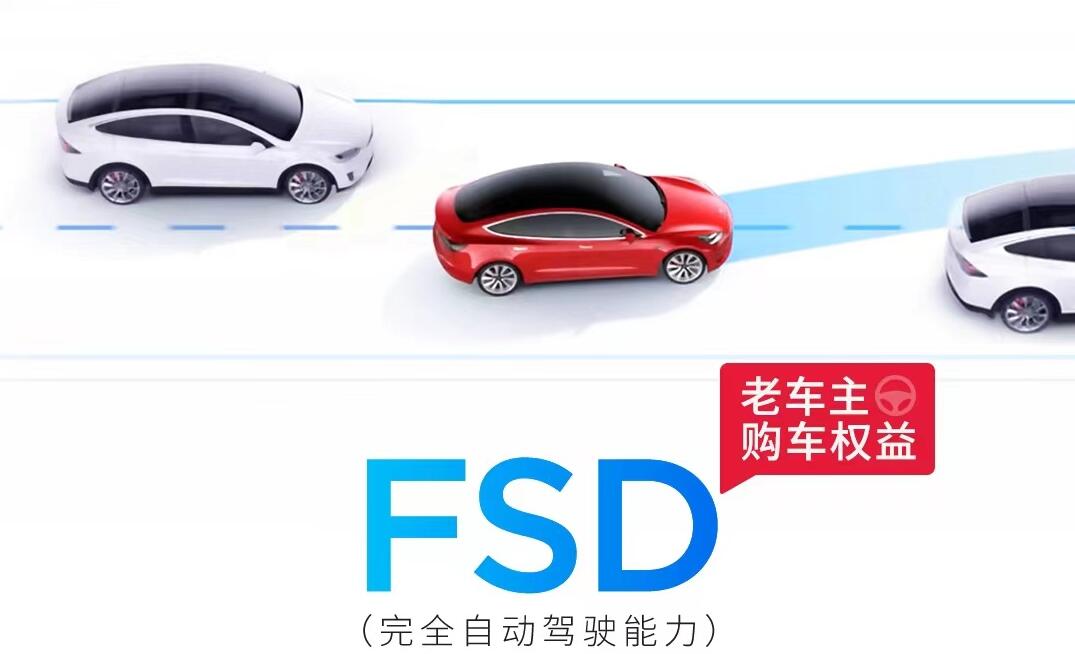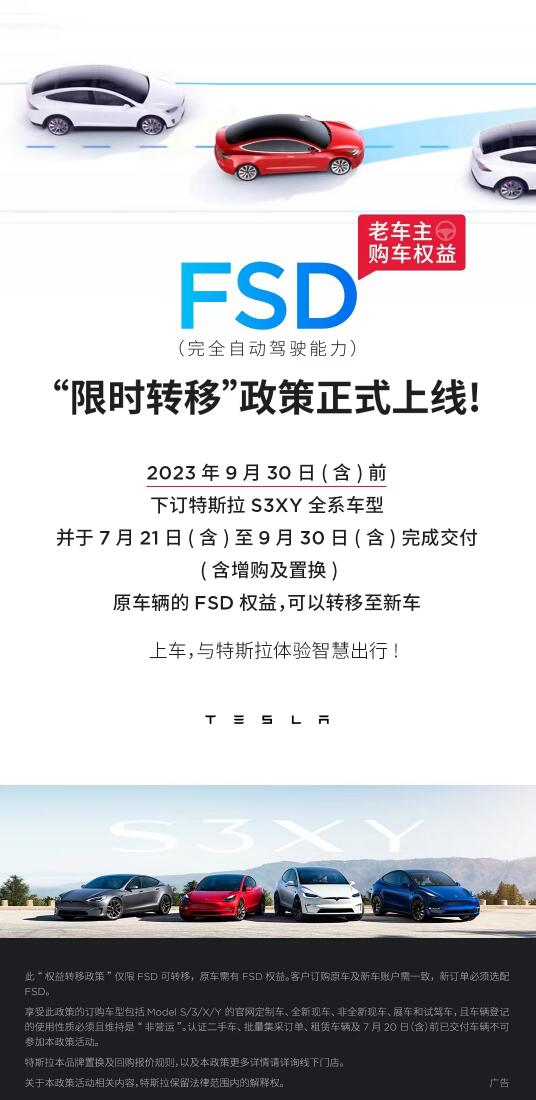Nio's NOP+ is subscription-based, and Xpeng's XNGP is only available on select models and is free.

Tesla (NASDAQ: TSLA) is starting to allow customers who previously purchased Full Self-Driving (FSD) in China to transfer use of the driver-assistance software to a new vehicle, following its move in the US.
Chinese Tesla owners who order any of the Tesla Model S, Model 3, Model X, or Model Y models before September 30 and take delivery between July 21 and September 30 will be able to transfer the FSD entitlement they originally had to a new vehicle, the company announced today on Weibo.
Tesla has a factory in Shanghai, currently its largest in the world, that produces the Model 3 and Model Y. Models S and Model X have yet to be built in China.
Tesla owners ordering a new Tesla vehicle will need to use the same account as the original vehicle, and the new order must be equipped with the FSD option to be eligible to transfer that software purchased for the old vehicle to the new one.
The entitlement is only available to customers buying a new car, show car or test drive vehicle, used vehicles are not included, and the vehicle should also be registered as non-operational with the traffic authority.
Tesla's move follows what it has done in the US. During its second-quarter earnings call on July 19, Tesla CEO Elon Musk said owners can transfer FSDs purchased for old vehicles to new ones.
All Tesla vehicles currently come with the free Basic Autopilot (BAP) software. In China, the company has been offering customers the option to buy FSD at purchases, which is currently priced at RMB 64,000 yuan ($8,900).
In addition to FSD, Tesla also offers Enhanced Autopilot (EAP) in China at a price of RMB 32,000, and Tesla has not yet allowed the transfer of the EAP.
Unlike Tesla's rollout of FSD Beta updates in the US, Tesla has not yet begun public road testing of the software in China.
FSD may be seen as having strong driver assistance capabilities in the US, but the user experience offered in China is essentially not much different from BAP.
Over the past few months, there have been some rumors that Tesla is about to bring FSD to China.
On April 3, local media outlet Caixin reported that Tesla was about to begin extensive testing of FSD in China.
On May 12, a Shanghai official said the city will further deepen its cooperation with Tesla and promote the electric vehicle maker's businesses, including self-driving and robotics, in Shanghai.
Shanghai will work with Tesla to build a technology industry cluster with core technology advantages for the global market, Chen Kele, deputy director of intelligent manufacturing promotion division at Shanghai Municipal Commission of Economy and Informatization, said at the time.
Chen did not directly mention Tesla's FSD, although it was the first time a Chinese official had hinted at support for Tesla's software.
It's worth noting that Tesla may have a few major issues to resolve before bringing FSD to China.
The trend for Tesla FSD to enter China is becoming clearer, but it faces two major issues before it becomes a reality -- data collection eligibility and supercomputing centers, CITIC Securities analyst Lian Yixi's team said on June 9.
By comparison, the major new Chinese car makers competing with Tesla have already made major strides in driver-assistance systems, and in addition to having long offered assisted driving on highways, they're bringing that capability to urban areas where traffic is more complex.
Xpeng's (NYSE: XPEV) Tesla FSD-like XNGP feature is already available on Beijing's ring road and major highways, as well as in Shanghai, Guangzhou and Shenzhen. The software is only available free of charge on some higher-trim models.
On July 17, Nio (NYSE: NIO) announced that its assisted driving software, NOP (Navigate on Pilot) Plus, became available on the ring roads and major highways in Beijing, making it the second EV company since Xpeng to achieve this.
NOP+ became available for subscription on July 1 at a price of RMB 380 per month. The software was previously available to users for free on a trial basis.
On April 18, Li Auto unveiled its latest generation of assisted driving system, AD Max 3.0, on the first day of the Shanghai auto show, saying the software would be free for life.
($1 = RMB 7.1878)

